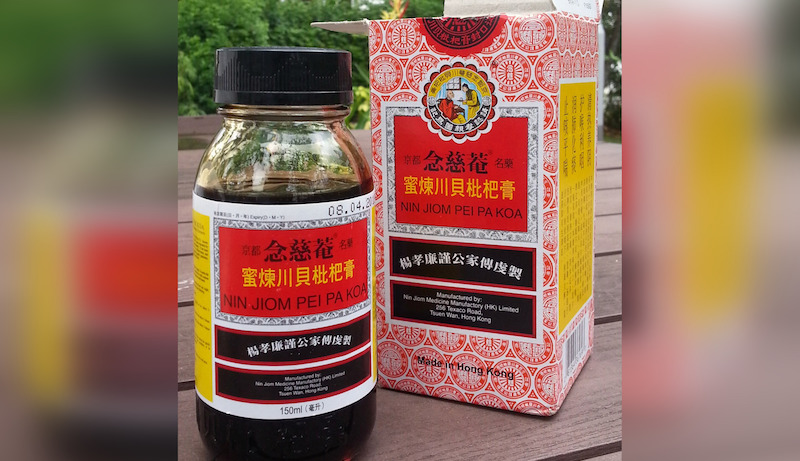Those of you who fall sick whenever a flu bug goes around would probably be familiar with Nin Jiom Pei Pa Koa — y’know, the sweet and minty Chinese herbal remedy from Hong Kong that’s made to soothe sore throats, relieve coughs, and reduce phlegm with its blend of herbs, loquat, and honey extracts.
The ubiquitous cough syrup can be found anywhere in Singapore, really, from NTUC FairPrice supermarkets to online retailer RedMart to convenience store Watsons, which even sells it in small sachets for on-the-go relief. Most of the time, you can get it at the affordable price of S$6.70 (US$5) for a 300ml bottle.
So it was pretty amusing to find out that the traditional Chinese cough syrup, which apparently originated during the Qing dynasty, recently made headlines halfway across the globe. According to a report by the Wall Street Journal last week, Nin Jiom Pei Pa Koa has been gaining popularity in New York City this flu season, thanks to its effectiveness and convenient accessibility.
One enthusiastic individual whom the publication interviewed even claimed his 10-day cough felt better just 15 minutes after he drank a bottle of the cough syrup.
But the shocker came when WSJ revealed that the price of a 300ml bottle can go up to as high as US$70 (S$92) with online third-party retailers. Damn, for that amount of money, you could get up to 13 bottles here — perhaps enough to last a lifetime if used sparingly.
Luckily, for New Yorkers who aren’t willing to cough up so much cash for a bottle, it retails at US$26.33 (S$34.90) on Amazon, US$13.29 (S$17.60) on Walmart’s online marketplace, and US$6 (S$8) at pharmacies in Manhattan’s Chinatown.
Nonetheless, the WSJ article got everyone talking about Nin Jiom Pei Pa Koa, so much so that shares of Kingworld Medicines Group soared over 27 percent on Monday, CNBC reported. The Hong Kong-listed Chinese pharmaceutical company is the one behind the production of the cough syrup.
Of course, even though the concoction may work wonders for some, it’s still a herbal remedy, and can involve health risks regarding excessive intake or consumption together with medicine.
Meanwhile, in Singapore, business-minded netizens were drawn to the potential profits of supplying the cough syrup to the US.







